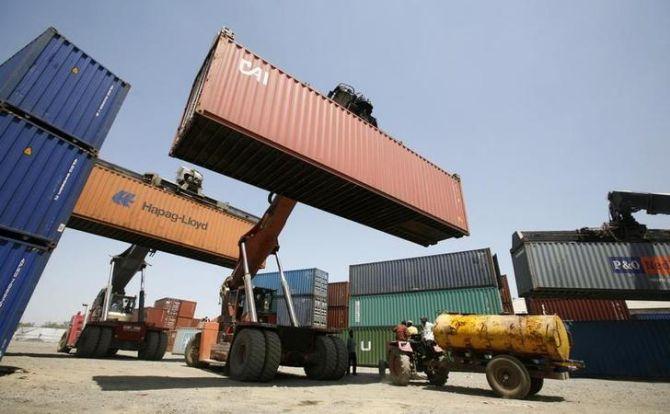UN economists announced a likely USD 50 billion drop in the worldwide manufacturing exports in February alone as the extent of the damage to the global economy caused by the novel coronavirus (COVID-19) moved further into focus.

Citing the China Manufacturing Purchasing Manager's Index (PMI), Pamela Coke-Hamilton, who heads UNCTAD's Division on International Trade and Commodities, said that it had fallen to 37.5 -- a drop of about 20 points -- the lowest reading since 2004.
“This also correlates directly to exports and also implies a two per cent drop in overall exports,” she said, with a resulting “ripple effect” worldwide “to the tune of a USD 50 billion fall in exports.”
Because China has become the main supplier of finished products and so-called “intermediate” products used in countless industries -- from chemical for pharmaceuticals to parts for digital cameras and the car industry -- concerns about the long-term disruption to supply chains there, has left many companies around the world “fearful” that their own output may soon be affected, UNCTAD said.
“Of course, if the virus continues to spread and gets out of control, and we see closures not only in China but also in India and the United States and everywhere else in the world, then it would be a big problem,” said Alessandro Nicita from UNCTAD's Division on International Trade and Commodities.
“Ultimately, the economic impact of this virus depends on the measures that countries apply to contain the virus. So, China has done a great job in containing the virus, but it has sacrificed a little bit the economy, at least in the first few weeks. So, planned closures, restriction to movement of people, which were all necessary; but there is an economic effect when you take those measures.”
In addition to the falling manufacturing levels, UNCTAD also highlighted a decrease in the number of container ships leaving Shanghai in the first half of February (from around 300 a week to 180), which then returned to normal levels in the second half of the month.
“Right now, the impact on the global value chains is already being felt and will continue probably for a few months,” Coke-Hamilton said.
“But if it rebounds, say in the next few months, then the long-term or year-long impact will be a little different and will be better. So, it depends on what happens in China.”
In remarks made at a joint press conference with the head of the World Bank Group, the IMF Managing Director, Kristalina Georgieva, said that the UN-backed global funds would make up the shortfall, in effect, by offering to inject around USD 50 billion into low-income and emerging market nations, pending requests for support.
Thanks to the generosity of our shareholders, we have about USD 1 trillion in overall lending capacity,” she said.
"For low-income countries, we have rapid-disbursing emergency financing of up to USD 10 billion (50 per cent of quota of eligible members) that can be accessed without a full-fledged IMF programme,” she added.
The IMF chief added that members can access emergency financing through the Rapid Financing Instrument.
"This facility could provide about USD 40 billion for emerging markets that could potentially approach us for financial support. We also have the Catastrophe Containment and Relief Trust -- the CCRT -- which provides eligible countries with up-front grants for relief on IMF debt service falling due.
"The CCRT proved to be effective during the 2014 Ebola outbreak, but is now underfunded with just over USD 200 million available against possible needs of over USD 1 billion."
She called on member countries "to help ensure that this facility is fully re-charged and ready for the current crisis", and said that the Fund was "fully committed to supporting our member countries, particularly the most vulnerable. We have the tools to help and we are coordinating closely with our partner institutions.”
Photograph: Reuters.











 © 2025
© 2025